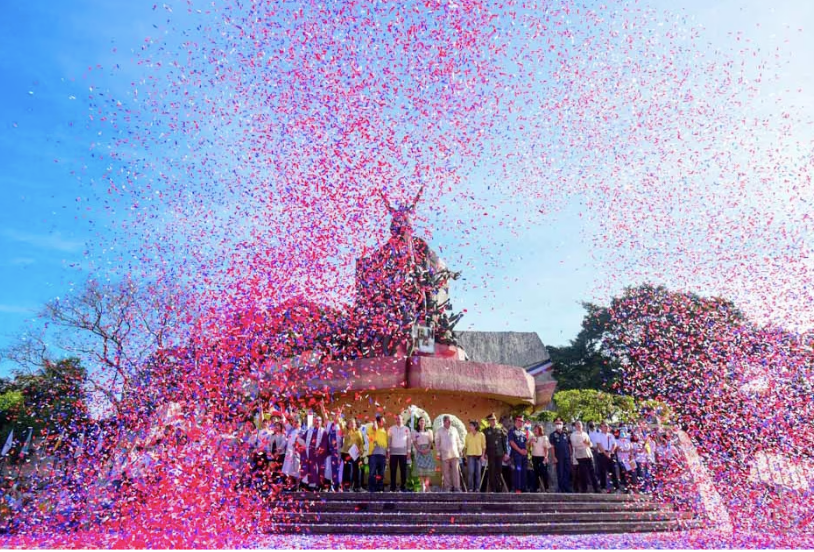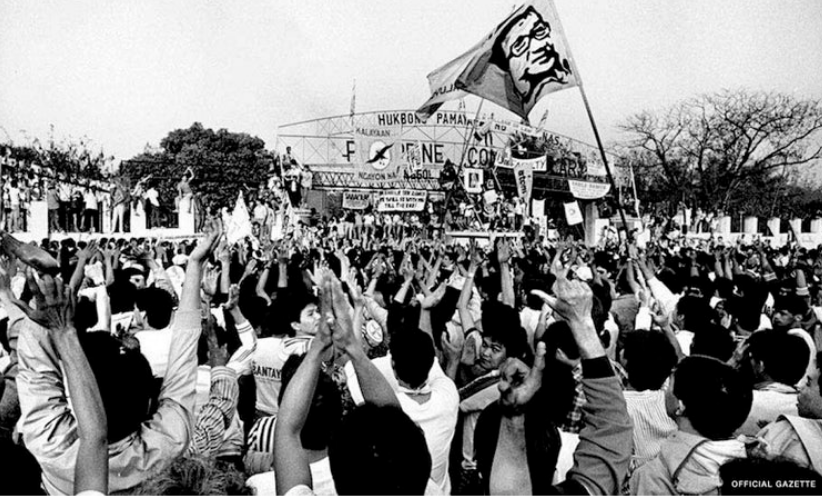The Philippines Commemorates 37th Anniversary of People's Power Revolution
The 37th anniversary celebration of the People Power Revolution on Feb. 25, 2023, at the People Power Monument in Quezon City. Photo: Maria Tan/ABS-CBN News
On Feb. 25 last week, the Philippines marked the 37th anniversary of the People’s Power Revolution. Also known as the EDSA revolution – named after the Epifanio de los Santos Avenue where hundreds of thousands of protestors gathered – the 3 day protest from the 22nd to 25th was monumental in toppling Ferdinand Marcos’ 21 years long dictatorship.
Under Marcos, the Philippines was in a state of martial law for almost 15 years from 1972 to 1986. This gave Marcos the power to arrest and detain all suspected opponents, to which the arrests often resulted the detainee’s torture or death. With unchallenged power, Marcos was also able to line his own pockets; according to a report by the Philippine Supreme Court, the personal wealth accumulated by Marcos during his reign amounted to $10 billion USD.
In light of this, the People’s Power Revolution was seen as a titanic movement in its ability to remove Marcos and restore democratic institutions back to the Republic.
In 1986, the People’s Power Revolution ousted Filipino dictator Ferdinand Marcos. Photo: Official Gazette of the Republic of the Philippines
Celebrations this year, however, might have been overshadowed by the fact that Ferdinand ‘Bongbong’ Marcos Jr., son of the previous Marcos, is the current president of the Philippines. This is the first time that the anniversary has been celebrated under President Marcos Jr. after his election to the presidency last May.
This jarring fact has raised questions over what the true impact of the Philippines’ democratic movement was and how it will be remembered. There is no fixed date for the commemoration, which is decided by the President every year.
Although Marcos Jr. first declared Feb. 25 the date of commemoration for the Revolution this year, he changed it at the last minute to Feb. 24 through Proclamation No. 167, signed just the day before on Feb. 23. Observers speculate that this could have been done to confuse the population, or shift the attention away from the historical significance of the event to the celebration of a 3-day weekend, as Feb. 24 fell on a Friday.
This will not be the first time that the President has attempted to reduce the poor legacy his father has left behind. Already, Marcos Jr. has used social media to downplay his father’s corruption and instead paint the regime as a period of growth and prosperity.
Encouragingly, a survey done by the Social Weather Stations, a social research institute in the Philippines, has found that a majority of Filipinos believe that the teachings or the spirit of the People Power Revolution remains alive today. The survey, conducted in Dec. 2022 and interviewed 1,200 respondents nationwide, found that 57% of respondents believed that remembering the Revolution was important
Amidst what seems to be a fracturing of the Filipino population along political lines, events such as the commemoration of the People’s Power Revolution become a powerful tool in sparking collective memory and forming national identities. While Marcos Jr. seems to have respected the commemoration event this year, it remains to be seen how he might further influence the remembrance of Filipino history, and most importantly, his father’s legacy.


